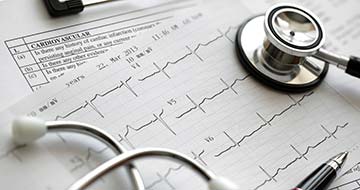Services
The first step in your care process is to understand the nature of your disease so that we can diagnose your condition.
Cardiac Electrophysiology, is the study of the electrical activities of the heart, specifically for the purposes of diag...
When our patients present with problems that may be cardiovascular in nature, we help determine the most likely diagnosi...
We help our patients improve blood flow in their arteries and veins by using very small tubes and specialized tools to d...
When the heart is functioning normally, the arteries are clear and open to allow for easy passage of blood through and o...
The highly trained surgeons and specialists at Biltmore diagnose and treat structural heart disease. We understand the n...
Heart Disease and Your Child
What are the types of heart diseases in children?
You may not expect it, but children are still susceptible to heart disease. We’ve highlighted a few of the most common conditions.- Arrhythmias: This abnormal rhythm of the heart can keep the heart from pumping efficiently. Symptoms include dizziness, fainting and weakness.
- Congenital Heart Disease: Affecting the heart wall, valves and blood vessels, babies can be born with this disease. Symptoms include chest paint, trouble breathing and low birth weight.
- Heart Murmurs: If the doctor hears a “whooshing” sound between heartbeats, your child may have a heart murmur.
When should a child be screened for heart disease?
- Obesity: Affecting nearly 14.7 million children and adolescents, childhood obesity can lead to heart disease risks, including high blood pressure and high cholesterol.
- Chronic Conditions: Children with diabetes or other chronic conditions are at an increased risk of heart disease.
- Family History: Check your family tree for inherited heart diseases, such as high blood pressure and coronary artery disease.
What type of heart screenings are available?
Screenings include an evaluation of body weight through a Body Mass Index (BMI) test as well as blood glucose, fasting lipoprotein profile (cholesterol) and blood pressure screenings. Talk with your doctor to determine the best screening for your child.How do I lower a child’s risk for heart disease?
Put your child’s heart health at the top of your list. By taking the time to focus on their diet, exercise and regular check-ups with their doctor, you can help keep them on a path to a healthier future.SOURCE
Healthline
Centers for Disease Control and Prevention
National Center for Biotechnology Information, U.S. National Library of Medicine
American Heart Association







